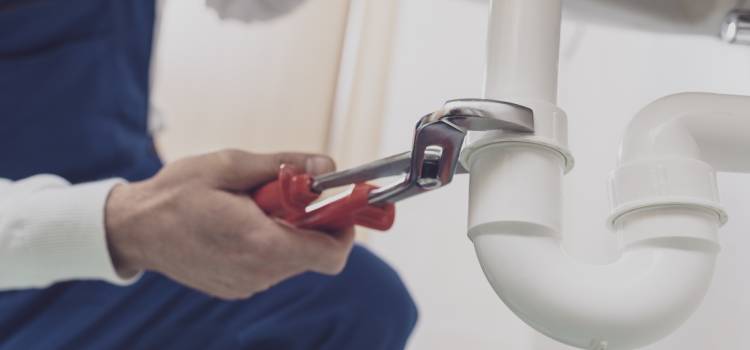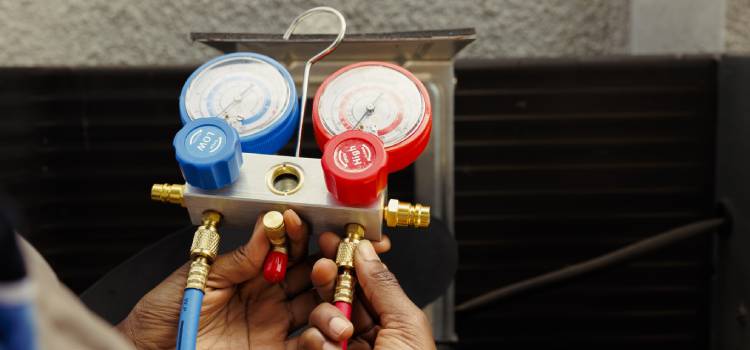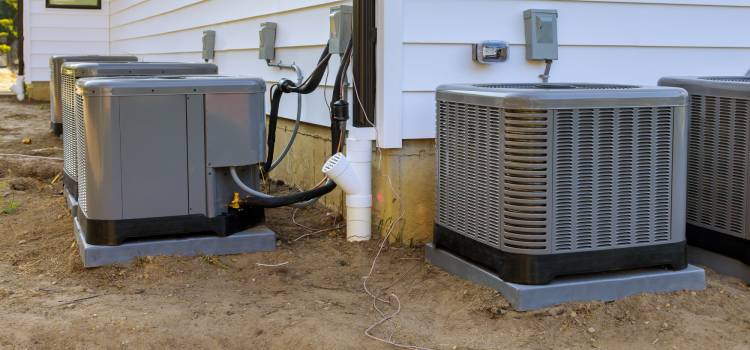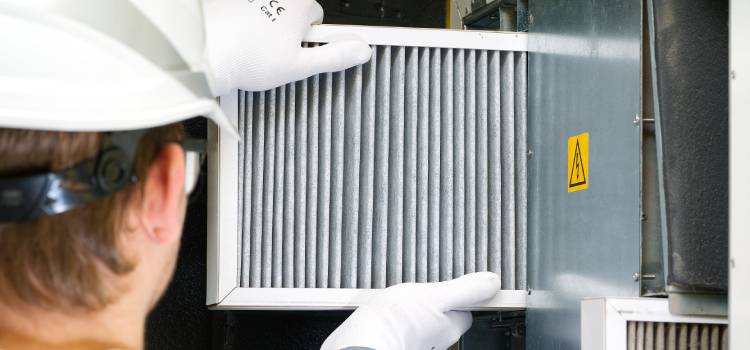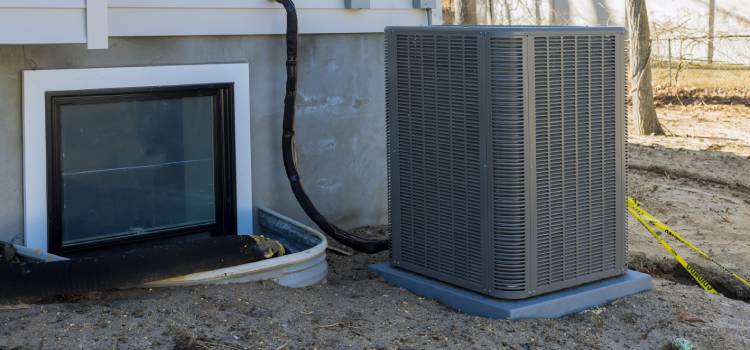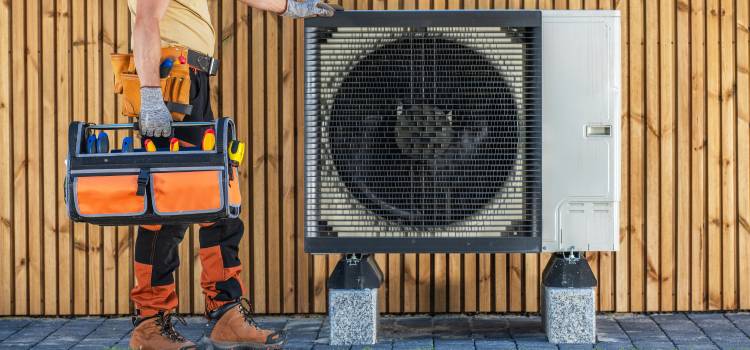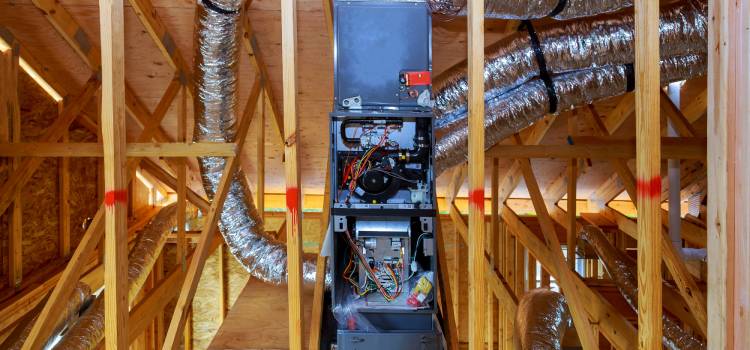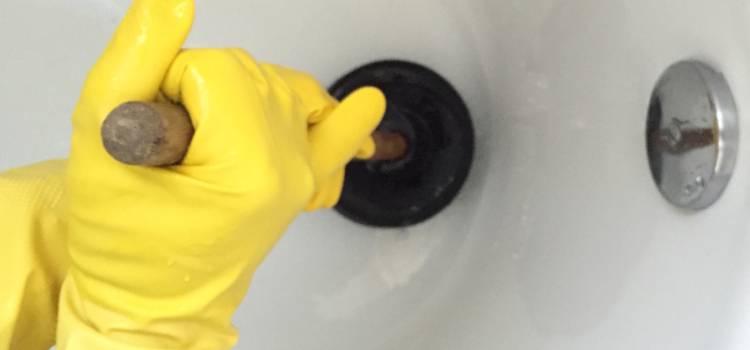- Plumbing Repair
- AC Repair and Maintenance
- AC Installation Replacement
- AC Filter Replacements
- Central Air Installation
- Heat Pump Installation
- Furnace Installation
- Drain Clearing
Plumbing Repair
Timely and professional plumbing repair is crucial for maintaining the integrity and functionality of your home’s plumbing system. Addressing issues promptly can prevent minor problems from escalating into costly disasters, such as water damage or severe blockages. This article will explore the importance of plumbing repair, identify common plumbing issues that require immediate attention, and provide insights into the professional repair process.
Why Is Professional Plumbing Repair Important?
- Preventing Further Damage: Quick repairs help prevent problems from worsening, which can save money on more extensive repairs later.
- Conserving Water: Fixing leaks and other issues promptly helps reduce water wastage, which is good for the environment and can lower your water bills.
- Maintaining Home Value: A well-maintained plumbing system contributes to the overall value of your home, making it important to address any issues as they arise.
- Ensuring Health and Safety: Leaks and clogs can lead to mold growth and unsanitary conditions if not addressed quickly. Professional repairs help maintain a healthy living environment.
Signs You Need Plumbing Repair
- Persistent Leaks: Even small drips can indicate more serious issues lurking within your plumbing system.
- Low Water Pressure: This can be caused by blockages, pipe corrosion, or leaks.
- Noisy Pipes: Banging, whistling, or rattling sounds can be signs of air in the pipes or loose fittings.
- Poor Water Quality: Discoloration, bad taste, or unusual smell in water can suggest corrosion or biofilm buildup in your pipes.
- Frequent Clogs: Recurring or multiple clogged drains can indicate a problem deeper in the sewer line.
Choosing the Right Service for Plumbing Repair
When selecting a professional for plumbing repair, consider the following:
- Licensed Professionals: Ensure that the technicians are licensed and insured, which guarantees that they meet industry standards.
- Experience and Expertise: Choose a service with extensive experience and a track record of handling a wide range of plumbing issues.
- Emergency Services: Availability of emergency services is crucial, as plumbing issues can arise unexpectedly and require immediate attention.
- Customer Reviews and Testimonials: Check online reviews and testimonials to gauge the reliability and quality of the service provider.
Professional Plumbing Repair Process
A typical professional plumbing repair service includes the following steps:
- Assessment and Diagnosis: Technicians will conduct a thorough assessment of the issue using tools and cameras to diagnose the problem accurately.
- Discussing Options: Depending on the issue, the plumber will provide you with repair options and clear explanations of what each entails.
- Conducting Repairs: The chosen repair solution will be implemented using quality parts and tools to ensure a lasting fix.
- Testing: After the repair, the system will be tested to confirm everything is working correctly and that the issue has been resolved.
- Cleanup and Follow-Up: Professional services include cleaning up the work area and providing follow-up advice or services to prevent future issues.
Conclusion
Professional plumbing repair is essential for maintaining a safe and efficient home plumbing system. By choosing Plumber HVAC OC for your plumbing repairs, you entrust your home to skilled professionals committed to delivering high-quality service. Their expertise ensures that all repairs are carried out efficiently, effectively, and with minimal disruption to your daily life.
Scheduling service with Plumber HVAC OC solves your immediate plumbing issues and helps prevent future problems, ensuring your plumbing system remains in excellent condition. Their dedication to excellence and customer satisfaction makes them a leading choice for homeowners seeking reliable and effective plumbing solutions.
AC Repair and Maintenance
Regular repair and maintenance of your air conditioning (AC) unit are vital to ensure it operates efficiently and effectively throughout its service life. Addressing issues early on and keeping up with routine maintenance extends the lifespan of your AC unit and helps maintain optimal performance and energy efficiency. In this article, we’ll explore the importance of regular AC maintenance and repair, how often it should be done, and provide a step-by-step guide on basic maintenance tasks.
Why Is AC Repair and Maintenance Important?
- Optimal Performance: Routine maintenance ensures that your AC unit operates at peak efficiency. Regular checks can prevent the decline in performance that typically occurs with neglect.
- Energy Efficiency: A well-maintained AC unit uses less energy, which can lead to lower utility bills. Tasks like cleaning the coils and changing the filters are critical for maintaining energy efficiency.
- Longevity: Preventative maintenance reduces the wear and tear on the unit, which can significantly extend its life.
- Avoiding Major Repairs: Regular maintenance helps identify and address small issues before they become big, expensive problems.
How Often Should You Perform AC Maintenance?
The frequency of maintenance can vary based on several factors:
Type of Unit: Some AC units, particularly older models or those that run all year round, might require more frequent attention.
Usage: High usage increases wear and tear, necessitating more frequent checks and maintenance.
Environment: Units operating in dusty or dirty environments, or areas with high pollen counts, may need more frequent servicing to maintain optimal functionality.
Generally, it is advisable to have your AC system professionally inspected and serviced at least once a year, ideally before the cooling season begins.
Choosing the Right Service for AC Maintenance
When selecting a service provider for your AC maintenance, consider the following:
- Certification and Experience: Ensure the technicians are certified and experienced in working with your particular type of AC unit.
- Service Contracts: Some companies offer service contracts that include scheduled inspections and maintenance, which can be more convenient and sometimes more cost-effective.
- Reputation: Look for service providers with good reviews and a strong reputation in your community.
How to Perform Basic AC Maintenance
Here’s how you can perform some basic maintenance tasks:
- Turn Off the Power: Ensure the unit is powered off before you begin maintenance to avoid injury.
- Clean or Replace the Air Filters: This should be done every one to three months, depending on use and environmental factors.
- Check the Thermostat: Ensure that your thermostat is working correctly and keeps your home at a comfortable temperature.
- Inspect and Clean the Condenser Coils: Dirty coils can reduce efficiency and cause your unit to work harder, which leads to increased wear and tear.
- Check the Condensate Drain: Make sure the drain is not clogged and is draining properly.
- Look for Leaks: Inspect for signs of refrigerant leaks, as these can impact performance and are potentially harmful to the environment.
- Schedule Professional Service: For deep cleaning, checking electrical connections, and verifying the system’s refrigerant levels, it’s important to schedule service with a professional.
Conclusion
Regular AC maintenance and timely repairs are essential for keeping your unit functioning efficiently, saving you money on energy costs, and extending the system’s lifespan. By choosing a reliable service provider like Plumber HVAC OC for your AC maintenance, you ensure that your system is in capable hands. Their expertise and professional approach mean that any potential issues can be addressed quickly and effectively, avoiding more significant problems down the line.
Furthermore, by scheduling your appointment today with Plumber HVAC OC, you gain peace of mind, knowing that your AC unit will perform optimally when you need it most. Their deep understanding of HVAC systems makes them an ideal choice for anyone looking to maintain high air quality and system efficiency without the hassle of managing maintenance tasks themselves.
AC Installation and Replacement
Proper installation and timely replacement of your air conditioning (AC) unit are crucial for ensuring optimal comfort in your home or office. A well-executed installation or a timely upgrade to a more efficient model can enhance air quality, improve energy efficiency, and reduce ongoing maintenance costs. This article will discuss why professional AC installation and replacement are important when to consider replacing your unit, and the key factors to consider during the selection and installation process.
Why Is Professional AC Installation and Replacement Important?
- Guaranteed Efficiency: Correct installation is vital for an AC unit to operate at its designed efficiency. Improper installation can reduce a system’s efficiency significantly, increasing energy costs and reducing comfort.
- Longevity of the System: A professionally installed AC system will typically have a longer operational life. Proper setup helps prevent common issues such as frequent breakdowns and uneven cooling.
- Warranty and Service Guarantees: Many manufacturers require professional installation as a condition of their warranty. Using qualified technicians ensures that warranty standards are met, protecting your investment.
- Safety: Professional installation helps ensure that the electrical, ductwork, and other related installations meet local building codes and safety standards.
When to Consider AC Installation or Replacement
- Age of the Unit: If your AC unit is more than 10-15 years old, it may be time to consider a replacement to benefit from newer, more energy-efficient technology.
- Frequent Repairs: When your AC unit needs frequent repairs, replacing it may be more economical than continuing to pay for ongoing issues.
- Energy Bills Increasing: An increase in energy bills might indicate that your AC system is losing efficiency, which can often be addressed with a new, more efficient system.
- Inadequate Performance: If your AC can’t maintain comfortable temperature levels or struggles with humidity control, it might be time for an upgrade.
Choosing the Right AC System
When selecting a new AC unit, consider the following:
- Size and Capacity: Choosing a unit with the appropriate size and capacity for your space is crucial. An oversized or undersized unit can lead to inefficiency and shorter life expectancy.
- Energy Efficiency: Look for units with a high SEER (Seasonal Energy Efficiency Ratio) rating. Higher SEER ratings indicate better energy efficiency.
- Type of System: Depending on your needs and the structure of your building, you may choose from split systems, multi-split systems, or central air conditioning systems.
- Reputation and Warranty: Choose brands with good reputations for reliability and units that offer favorable warranty terms.
AC Installation Process: What to Expect
A typical AC installation involves several key steps:
- Consultation and Assessment: A professional installer will assess your home’s cooling needs, area size, and existing ductwork (if any) to recommend the most suitable AC unit.
- Removal of the Old Unit: If replacing an existing system, the old unit will be safely removed and disposed of according to local regulations.
- Installation of the New Unit: This includes setting up the indoor and outdoor units, completing electrical connections, and ensuring proper placement of ductwork and ventilation.
- Testing and Calibration: The system will be tested to ensure it operates correctly and efficiently after installation. This includes checking thermostat settings and refrigerant levels.
- Final Review and Maintenance Guidance: The installer will review the installation with you, provide maintenance tips, and discuss any service plans for future maintenance.
Conclusion
Choosing the right professionals for AC installation or replacement is essential for maximizing the benefits of your new system. Opting for Plumber HVAC OC ensures that your installation is handled by certified and experienced technicians who adhere to the highest quality and safety standards. By scheduling your installation with Plumber HVAC OC, you can enjoy peace of mind knowing that your AC system will provide optimal performance and comfort.
Plumber HVAC OC offers comprehensive service from the initial consultation to post-installation support, making them the preferred choice for ensuring that your new AC system is a valuable addition to your home.
AC Filter Replacements
Regular maintenance of your air conditioning (AC) unit is essential to ensure it runs efficiently and effectively. One of the simplest yet most crucial aspects of this maintenance is replacing the AC filter. Not only does a clean filter improve air quality by trapping pollutants and allergens, but it also enhances the efficiency of your AC unit, potentially reducing energy costs and extending its lifespan. In this article, we’ll explore why AC filter replacements are important, how often they should be done, and provide a step-by-step guide on how to replace a filter yourself.
Why Replace Your AC Filter?
- Improved Air Quality: AC filters catch dust, pollen, pet dander, and other airborne particles. Regularly replacing these filters ensures cleaner air in your home or office, which is particularly beneficial for those with allergies or respiratory issues.
- Enhanced Efficiency: A dirty or clogged filter forces the AC unit to work harder, which consumes more energy and can lead to higher utility bills. Clean filters ensure your system operates at peak efficiency.
- Preventing System Damage: Over time, a dirty filter can lead to serious maintenance issues, including frozen evaporator coils and overheated motors. Regular replacement prevents such problems and can save you from costly repairs.
How Often Should You Replace Your AC Filter?
The frequency of filter replacement can vary based on several factors:
- Type of Filter: Basic fiberglass filters might need to be replaced monthly, while more advanced pleated filters can last up to six months.
- Usage: If your AC runs constantly or you live in a dusty area, you may need to replace your filter more frequently.
- Household Factors: Homes with pets, smokers, or residents with allergies might require more frequent changes to maintain optimal air quality.
A general rule of thumb is to check your AC filter monthly and expect to change it at least every 90 days.
Choosing the Right AC Filter
When selecting a new AC filter, consider the following:
- MERV Rating (Minimum Efficiency Reporting Value): This measures how effectively a filter traps particles. Ratings range from 1 to 20; residential systems typically use filters rated between 6 and 13. Higher MERV ratings trap smaller particles, which is beneficial for those with health concerns related to air quality.
- Size: Filters must fit snugly in your AC unit. Check your existing filter or your AC’s manual for the correct size.
- Type: Options include fiberglass, pleated, and electrostatic filters, each offering different benefits and lifespans.
How to Replace an AC Filter: A Step-by-Step Guide
Replacing your AC filter is a straightforward process:
- Turn Off the AC: Always switch off your unit before attempting to replace the filter to prevent any airflow while the panel is open.
- Locate the Filter: Find the filter in the return duct or blower compartment. The exact location can vary, so consult your AC’s manual if necessary.
- Remove the Old Filter: Slide the old filter out while noting the direction of the airflow indicated by arrows on the filter frame. This will ensure you install the new filter correctly.
- Insert the New Filter: Slide the new filter into place, following the airflow direction. Ensure it fits securely without any gaps around the edges.
- Dispose of the Old Filter: Seal the old filter in a bag and dispose of it to prevent any trapped particles from escaping back into your home.
- Turn On the AC: Once the new filter is in place, turn your AC unit back on.
Conclusion
Choosing Plumber HVAC OC for your AC filter replacements offers significant advantages for maintaining the efficiency and longevity of your air conditioning system. Their expertise ensures that the job is done correctly and efficiently, meeting the highest standards of service. Regular maintenance, including timely filter replacements, is key for enhancing your AC unit’s efficiency and preventing potential system damages—strengths that Plumber HVAC OC brings to the table. They provide expert advice on selecting the right filter type, with the appropriate MERV rating and size to meet your specific needs, whether you are concerned about air quality due to allergies or seeking efficient energy use.
Furthermore, opting for Plumber HVAC OC can save you from the hassle and uncertainty of handling filter changes yourself. By scheduling an appointment today, you gain peace of mind knowing that your AC system is in capable hands. This not only ensures optimal performance but also helps extend the lifespan of your unit. In short, the professional service and deep understanding of HVAC systems that Plumber HVAC OC offers make them the ideal choice for anyone aiming to maintain high air quality and system efficiency effortlessly.
Central Air Installation
A central air conditioning system significantly enhances indoor comfort by consistently cooling throughout your home. This guide will discuss the importance of professional central air installation, the factors to consider when choosing a system, and what to expect during the installation process.
Why Is Professional Central Air Installation Important?
- Optimal Efficiency: Proper installation is crucial for the system to operate at its peak efficiency. Incorrect installation can lead to increased energy usage and higher utility bills.
- Reliability and Longevity: A professionally installed central air system tends to have fewer operational issues over time and can last longer, providing value for your investment.
- Warranty and Support: Many manufacturers require professional installation as a condition of their warranty. Using certified technicians ensures that the installation meets these requirements and that support is available if needed.
- Compliance with Regulations: Professional installers are familiar with local codes and regulations, ensuring that the installation complies with all legal requirements.
When to Consider Central Air Installation
- New Home Construction: Installing central air during the construction of a new home allows for optimal integration with the home’s design and layout.
- Upgrading from Window Units: If you currently use window units or another less efficient cooling method, upgrading to central air can provide more effective and efficient cooling.
- Replacement of an Old System: If your existing central air system is old, inefficient, or frequently in need of repairs, it may be more cost-effective to replace it with a new, more energy-efficient system.
Choosing the Right Central Air System
When selecting a central air system, consider the following factors:
- Size and Capacity: It’s crucial to choose a system appropriately sized for your home. An oversized or undersized system can lead to inefficiency and increased wear.
- Energy Efficiency: Look for a system with a high SEER (Seasonal Energy Efficiency Ratio) rating. Systems with higher SEER ratings are more efficient and can lead to lower energy costs.
- Type of System: You can choose between split systems, which are most common in residential homes, and packaged systems, depending on your home’s needs and constraints.
- Reputation of Manufacturer: Opt for a system from a reputable manufacturer known for quality and reliability. Also, consider the warranty offered as it can provide additional peace of mind.
Central Air Installation Process
The process of installing a central air system typically involves several key steps:
- Initial Consultation and Assessment: A professional installer will assess your home’s layout, existing ductwork (if applicable), and cooling needs to recommend the most suitable system.
- Preparation and Removal of Old Equipment: If replacing an old system, the existing equipment will be safely removed and disposed of according to local regulations.
- Installation of the New System: This includes placing the indoor and outdoor units, completing necessary ductwork modifications, and making all electrical and plumbing connections.
- System Testing and Calibration: Once installed, the system is thoroughly tested to ensure it operates correctly across all settings. This stage also involves calibrating the thermostat and checking airflow.
- Final Walk-Through and Maintenance Guidance: The installer will review the installation with you, demonstrate how to operate the system, and discuss maintenance tips to ensure long-term performance.
Conclusion
Professional installation of a central air system is vital for ensuring efficient, effective cooling throughout your home. By choosing a skilled and experienced service provider like Plumber HVAC OC, you ensure that your new central air system is installed correctly and compliant with all technical specifications and local codes.
Scheduling your installation with Plumber HVAC OC not only brings you the expertise needed for a seamless installation but also the assurance that your system will provide reliable cooling for years to come. Their commitment to quality and customer satisfaction makes them a trusted choice for homeowners looking to enhance their home comfort with a new central air system.
Heat Pump Installation
Installing a heat pump offers a sustainable and highly efficient solution for effectively heating and cooling your home throughout the year. Heat pumps are increasingly popular because they provide energy-efficient climate control throughout the year. This guide will cover the importance of professional heat pump installation, key factors to consider when choosing a heat pump, and what you can expect during the installation process.
Why Is Professional Heat Pump Installation Important?
- Maximized Efficiency: Proper installation is critical to ensure the heat pump operates efficiently. Incorrect installation can lead to increased energy use and higher utility bills.
- System Longevity: A professionally installed heat pump is more likely to run effectively for longer, reducing the need for frequent repairs and prolonging its lifespan.
- Warranty Validation: Most manufacturers require professional installation as a condition for warranty coverage, ensuring that the system is installed according to their specifications.
- Safety and Compliance: Professional installers are knowledgeable about local building codes and environmental regulations, ensuring that the installation meets all safety standards.
When to Consider Heat Pump Installation
- Building a New Home: Integrating a heat pump system during the construction of a new home allows for optimal design and efficiency.
- Replacing an Old Heating/Cooling System: If your existing system is outdated, inefficient, or prone to breakdowns, replacing it with a heat pump can be a cost-effective and energy-efficient alternative.
- Seeking Year-Round Climate Control: Heat pumps provide efficient heating and cooling, making them ideal for climates with moderate heating and cooling needs.
Choosing the Right Heat Pump
When selecting a heat pump, consider the following factors:
- Type of Heat Pump: Choose between air-source, ground-source, or water-source heat pumps depending on your location, climate, and property characteristics.
- Heating and Cooling Capacity: Ensure the heat pump is adequately sized for your home. An undersized or oversized unit can lead to inefficiencies and comfort issues.
- Energy Efficiency: Look for models with a high Seasonal Energy Efficiency Ratio (SEER) for cooling and a high Heating Seasonal Performance Factor (HSPF) for heating. Higher ratings mean better energy efficiency.
- Reputable Manufacturer: Choose a heat pump from a reputable manufacturer known for quality and reliability. Consider the length and coverage of the warranty as well.
Heat Pump Installation Process
The installation of a heat pump involves several key steps:
- Site Assessment: A professional installer will evaluate your home’s heating and cooling needs, existing ductwork, and site conditions to determine the best type and size of heat pump.
- System Design: Based on the assessment, the installer will design a system that meets your home’s specific needs, including any necessary modifications to ductwork or electrical systems.
- Installation of the Heat Pump: This step includes setting up the indoor handler, outdoor unit, and any other components such as ductwork and thermostats.
- System Testing: After installation, the system is tested to ensure it operates efficiently and effectively. This includes checking all connections, settings, and functions.
- Customer Orientation and Documentation: The installer will walk you through the operation of your new system, provide all warranty information, and discuss maintenance tips to keep your heat pump running smoothly.
Conclusion
Choosing the right professionals for heat pump installation is crucial to ensure efficient, effective heating and cooling for your home. Opting for Plumber HVAC OC ensures that your heat pump is installed correctly and optimally configured for your specific needs. Their certified technicians are experienced in all aspects of heat pump technology, providing a seamless installation process and peace of mind.
By scheduling your installation with Plumber HVAC OC, you gain access to expert advice and top-quality service, ensuring your heat pump system delivers optimal performance and energy efficiency. Their commitment to excellence and customer satisfaction makes them a trusted provider for homeowners seeking a reliable and sustainable heating and cooling solution.
Furnace Installation
Installing a new furnace in your home is a critical decision that can significantly impact comfort, energy efficiency, and indoor air quality. This guide will delve into the importance of professional furnace installation, key considerations when choosing a furnace, and the detailed steps involved in the installation process.
Why Is Professional Furnace Installation Important?
- Ensured Efficiency: Proper installation is crucial for the furnace to operate at its intended efficiency. Improper setup can lead to increased fuel consumption and higher utility costs.
- Safety: Furnaces involve complex integration with gas lines or electrical systems, making professional installation vital to prevent leaks, fires, or other hazards.
- System Longevity: A professionally installed furnace is less likely to suffer from operational issues, which can extend its lifespan and reduce the need for frequent repairs.
- Warranty Compliance: Most manufacturers require installation by certified professionals to keep the warranty valid, ensuring support and coverage for any potential issues.
When to Consider Furnace Installation
- Building a New Home: Incorporating a furnace during the construction phase allows for seamless integration with your home’s ductwork and design.
- Existing System Failure: If your old furnace breaks down frequently or no longer heats effectively, it may be more cost-effective to replace it.
- Energy Efficiency Upgrade: Upgrading to a newer, more energy-efficient model can reduce your heating costs and improve your home’s comfort.
Choosing the Right Furnace
When selecting a furnace, consider the following factors:
- Type of Furnace: Decide between gas, electric, or oil furnaces based on availability, cost, and preference for your area.
- Heating Capacity: The furnace should be properly sized for your home. An oversized or undersized furnace can lead to inefficiency, increased wear, and discomfort.
- Energy Efficiency: Look at the Annual Fuel Utilization Efficiency (AFUE) rating. Furnaces with higher AFUE ratings are more efficient and can provide significant savings on heating bills.
- Brand and Warranty: Choose a reputable brand with a strong warranty to ensure reliability and support after installation.
Furnace Installation Process
The furnace installation process generally includes several essential steps:
- Initial Consultation and Assessment: A professional will assess your home’s heating requirements and existing ductwork to recommend the appropriate furnace type and size.
- Removal of Old Furnace: If replacing an existing system, the old furnace will be safely removed and disposed of according to local regulations.
- Installation of New Furnace: This step involves placing the new furnace, connecting it to ductwork, gas lines, and electrical systems, and ensuring all components are securely fitted.
- System Testing: The installer will test the furnace to ensure it operates correctly and adjusts all settings for optimal performance. This includes checking for leaks and testing safety controls.
- Final Walkthrough and Maintenance Instructions: The installer will guide you through the operation of your new furnace, discuss maintenance tips, and provide warranty details.
Conclusion
Professional installation of your new furnace by a qualified service provider like Plumber HVAC OC ensures that your heating system is safe, efficient, and effective. Their certified technicians bring expertise and meticulous attention to detail, providing a seamless installation process and peace of mind.
By choosing Plumber HVAC OC for your furnace installation, you not only benefit from expert installation services but also ongoing support and maintenance advice. This ensures your new heating system operates at peak efficiency and continues to provide warmth and comfort to your home for years to come. Their commitment to quality and customer satisfaction makes them a trusted choice for homeowners looking to enhance their home heating solutions.
Drain Cleaning
Effective drain cleaning is essential for maintaining the proper functioning of your home’s plumbing system, ensuring it operates efficiently. Regular and professional cleaning can prevent severe blockages, unpleasant odors, and potential plumbing emergencies. This article will explore the importance of drain cleaning, identify common signs that you may need this service, and provide a step-by-step overview of professional drain cleaning processes.
Why Is Professional Drain Cleaning Important?
- Preventing Blockages and Overflows: Regular cleaning helps to keep your drains flowing freely, preventing the accumulation of debris that can lead to blockages and subsequent overflows.
- Reducing Odors: Buildup of organic matter in your pipes can cause unpleasant odors. Professional drain cleaning removes these accumulations, thereby eliminating odors at their source.
- Extending Pipe Lifespan: By removing corrosive buildup and blockages, professional cleaning can extend the lifespan of your plumbing pipes and fixtures.
- Enhancing Efficiency: Clean drains are more efficient at disposing of wastewater quickly and effectively, reducing the risk of backups and water damage.
Signs You Need Drain Cleaning
- Slow Draining: Water that drains slowly from sinks, showers, or bathtubs is often the first sign of a clog forming.
- Frequent Clogs: If you’re frequently dealing with clogs, even if they seem minor, it’s a sign that a more significant blockage may be building up in your system.
- Unpleasant Odors: Persistent bad smells emanating from your drains are a clear indicator that it’s time to clean them.
- Gurgling Sounds: Noises from your drains can indicate trapped air, which is often caused by blockages slowing down water flow.
- Water Backup: Water coming back up out of drains is a sure sign of a blockage somewhere in your plumbing system.
Choosing the Right Service for Drain Cleaning
When selecting a professional for drain cleaning, consider the following:
- Experience and Reputation: Choose a service provider known for reliability and quality. Check reviews and testimonials from other customers.
- Range of Services: Ensure the provider offers comprehensive drain cleaning and can handle any related issues that might arise during the process.
- Technology and Equipment: Professional drain cleaning services use advanced equipment like motorized drain augers and hydro-jetting systems for effective cleaning.
- Safety and Environmental Concerns: Opt for services that use environmentally safe methods and chemicals to prevent damage to your plumbing and the environment.
Professional Drain Cleaning Process
Here’s what typically happens during a professional drain cleaning service:
- Inspection: Technicians will first inspect your drain using cameras to identify the exact location and nature of the clog.
- Choice of Method: Depending on the blockage, professionals might use snaking, which involves a flexible auger pushed through the drain, or hydro-jetting, which uses high-pressure water to remove buildup.
- Cleaning: The chosen method will be applied to clear the blockage. This might be repeated to ensure the drain is thoroughly clean.
- Final Check: After cleaning, another inspection is often conducted to ensure that the blockages are completely cleared and that there are no residual buildups.
- Preventative Advice: Professionals will provide advice on how to maintain your drains and prevent future issues.
Conclusion
Regular and professional drain cleaning is crucial for maintaining the health of your home’s plumbing system. Choosing Plumber HVAC OC for your drain cleaning services ensures that your plumbing is handled by experienced professionals using the latest techniques and equipment. Their thorough cleaning methods not only resolve immediate issues but also help prevent future plumbing problems.
By scheduling a cleaning service with Plumber HVAC OC, you can rest assured that your drains will remain free-flowing, odor-free, and in excellent condition. Their commitment to quality and customer satisfaction makes them a trusted choice for homeowners looking to maintain an efficient and problem-free plumbing system.
COUPONS
Special Online Offers
$25 OFF
Must be presented at the time of service. Can not be combined with any other offer.
$75 OFF
Must be presented at the time of service. Can not be combined with any other offer.
$50 OFF
Must be presented at the time of service. Can not be combined with any other offer.
TESTIMONIALS
Our Customer Stories
I can’t recommend Plumber HVAC OC enough! They fixed our AC during a heatwave, and their technician was not only quick but also incredibly polite and knowledgeable. Truly a lifesaver!
Excellent service from Plumber HVAC OC when our pipes burst last winter. Their response time was exceptional, and they made sure everything was perfectly restored. Very professional and reliable!
Plumber HVAC OC has been our go-to for all our heating and plumbing needs. They always manage to deliver top-notch service and clear communication. I’m always impressed by their efficiency and expertise.
Request Service Today!
Experiencing issues with your plumbing or HVAC systems? Don’t wait! Use the Submit Request form to request service today and ensure your systems run smoothly and efficiently.
Our expert technicians are ready to provide fast, reliable assistance when you need it most.

